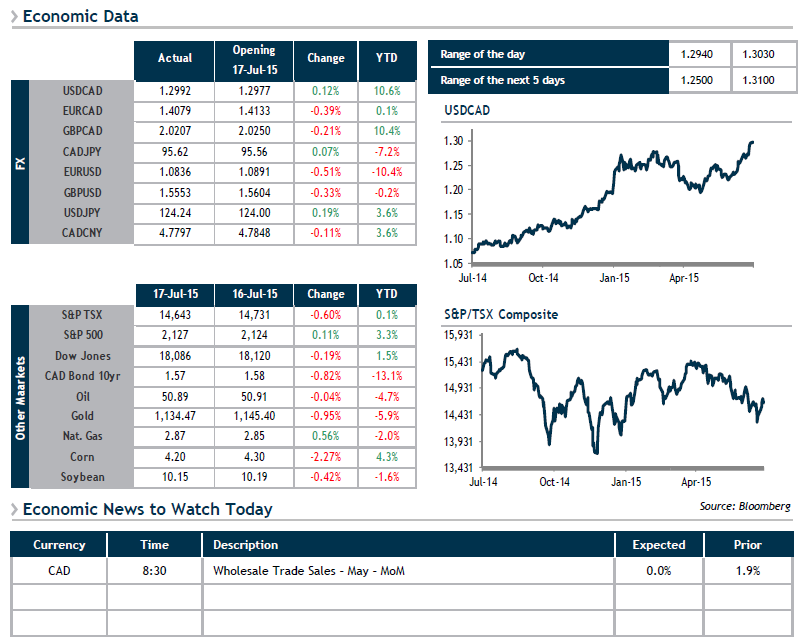No Time Off for Currency Markets
All signs are pointing to the famous currency war heating up again, with the divergent approaches from various monetary policies increasing. Last Friday, the U.K. joined the U.S. in the hawkish camp, indicating that their key rate would likely rise before the end of the year. Conversely, just like the Bank of Canada, speculations abound that the Reserve Bank of New Zealand will cut its key rate on Wednesday. New Zealand is suffering particularly from the drop in prices in its dairy sector, but its Prime Minister John Key is not necessarily happy that the NZD has fallen recently. In Australia things are quite different, with its leaders openly advocating for a weaker AUD to therefore make their economy more competitive.
The good news at this time is that Chair Fed Janet Yellen seems relatively comfortable with how the U.S. dollar is performing, estimating that a stronger economy presupposes a stronger currency. On Friday, the confirmation that inflationary pressures are rising in the United States and that Housing Starts and Building Permits are continuing to increase are supporting an eventual tightening in U.S. monetary policy. By adding the European component to the equation, it is therefore difficult to oppose the idea of a stronger USD.

